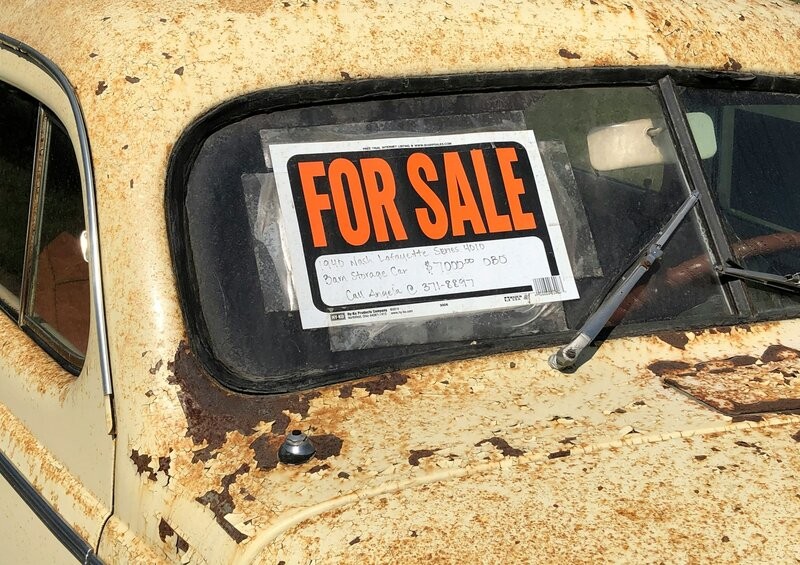Should you cancel your car insurance after selling your car?

Whether you’re selling your car to upgrade to a new one or simply no longer need a vehicle, managing your insurance policy is a critical step. Here’s a comprehensive guide to help you navigate the process of cancelling or transferring your car insurance after selling your car.
Timing your insurance cancellation
It’s rare for the sale of your car to coincide perfectly with the renewal date of your insurance policy. Therefore, you’ll likely need to cancel your policy before its renewal.
Fortunately, cancelling your car insurance in the UK has become more straightforward thanks to new legislation introduced in 2022. Although there may be some fees involved, you can cancel your policy at any time.
Should you keep your insurance when selling your car?
Unlike selling a car on finance, you don’t have to worry about transferring your insurance policy to the buyer. It’s crucial to cancel your insurance policy once you’ve sold your car because:
- The new owner needs their own insurance: The vehicle must be insured by the new owner.
- Notification requirement: You must inform your insurer that you no longer own the car.
- Unnecessary payments: Continuing to pay for insurance on a car you don’t own is a waste of money.
- Risk of claims: If the new owner has an accident and you haven’t cancelled your policy, you could be liable for claims.
Trading in your old car for a new one
If you’re trading in your old car for a new one, you don’t need to cancel your insurance immediately. Instead, you can often transfer your policy to your new car. Most insurers offer a transfer of ownership option, which allows you to move your existing policy to your new vehicle. However, you’ll need to provide details about the new car to your insurer, and there might be an administration fee involved.
Be aware that your insurance premium may change depending on the type of car you’re buying. For example, switching to a sports car might increase your premium.
Key considerations when cancelling your policy
Before cancelling your car insurance policy, it’s important to understand the potential financial implications. The amount you’ll get back depends on how long you’ve had the policy and how far through the year you are.
Cancelling during the 14-Day cooling-off period
UK law provides a 14-day cooling-off period for car insurance policies. This means you can cancel your policy within the first two weeks and receive a full refund, though you may still be liable for a small fee to cover administrative costs.
Cancelling after the 14-Day cooling-off period
Most people don’t sell their cars within the first two weeks of opening an insurance policy. After the cooling-off period, you can still cancel your policy, but you won’t get a full refund. If you paid for a year upfront, your refund will be prorated based on how much time is left on your policy. If you pay monthly, there’s typically no refund, and cancellation fees might apply.
Cancelling after making an insurance claim
You can cancel your policy even after making a claim, but this often comes with additional complications. If you’ve made a significant claim or more than one claim within a year, your insurer may have specific terms that impact your refund. If you pay monthly, you may need to pay off the remaining balance before you can cancel.
Cancelling if your car is declared SORN
If you’ve declared your car as off the road (SORN), you don’t need insurance for it. However, cancelling your policy means you’ll be liable for any damages or theft. If you’re close to the end of your policy, it might be better to keep it to secure your no-claims bonus.
Transferring your insurance policy
To transfer your insurance policy to a new car:
- Contact your insurer and inform them about the transfer.
- Provide details of the new car (make, model, registration number).
- The insurer will adjust your policy and update the documents.
- Pay any administrative fee required for the transfer.
FAQs
Can I remove insurance from my car if I’m not driving it?
Yes, but you’ll be liable for any damages or theft while it’s uninsured.
What happens to insurance when I sell my car?
Nothing automatically. You must notify your insurer and cancel or transfer the policy.
Can I sell my car with an open insurance claim?
Yes, but it might be better to resolve the claim first to avoid paying the remaining policy balance and fees.
Can I cancel my car insurance if I pay monthly?
Yes, but you won’t get a large refund, and administrative fees may apply.
Can I transfer my insurance policy to the new owner?
No, the new owner needs their own insurance policy.
Is it mandatory to notify my insurance company about the sale of my car?
It’s not mandatory, but highly recommended to avoid liability and unnecessary payments.
What happens if I forget to cancel my insurance after selling my car?
You’ll be liable for any claims made on your policy and continue to pay for unnecessary coverage.
Are there penalties for not cancelling insurance after selling my car?
No formal penalties, but potential liabilities and unnecessary costs.
How long do I have to cancel my insurance policy after selling my car?
There’s no set timeframe, but it’s best to do it as soon as possible.
Will my insurance rates be affected if I cancel the policy after selling my car?
Short lapses in coverage usually don’t impact rates, but major lapses might result in higher premiums later.
